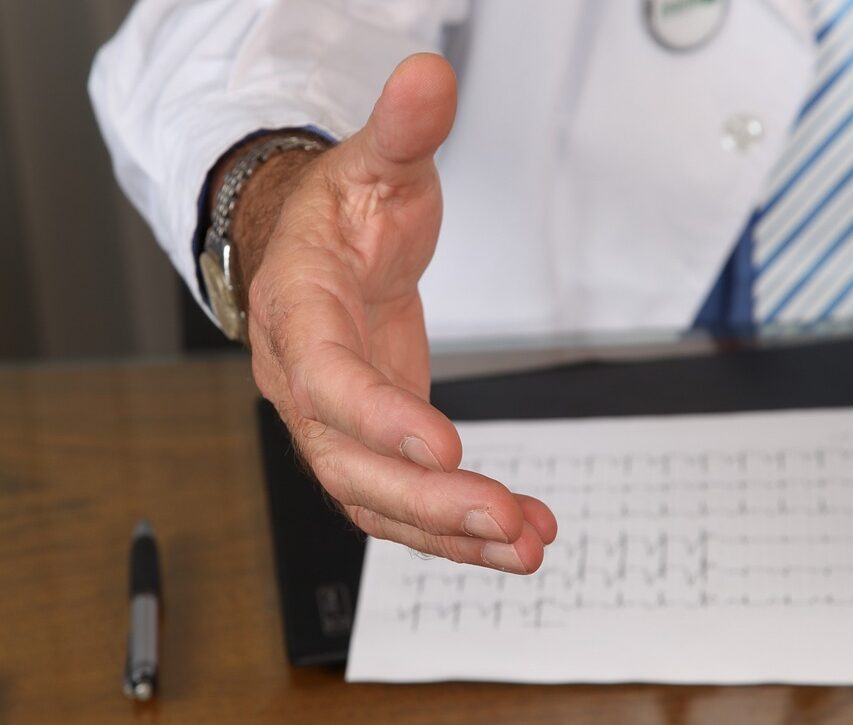Talking to a concussion doctor after experiencing a brain injury is essential for ensuring proper care and recovery. Concussions are complex traumatic brain injuries that can impact your cognitive, physical, and emotional well-being. If you’ve recently experienced a concussion or suspect you might have one, talking to a doctor is essential. But navigating the conversation with your healthcare provider can feel overwhelming. You might not know what questions to ask or how to describe your symptoms accurately.
This guide will walk you through how to effectively communicate with your doctor about a concussion, what to expect during the appointment, and how to advocate for your own brain health.
Why It’s Important to Talk to a Doctor About a Concussion
Many people assume that a concussion will “heal on its own,” but this misconception can delay proper care. Unlike a broken bone, a concussion isn’t something you can see on an X-ray or CT scan or even an MRI. Symptoms like dizziness, brain fog, and mood changes are often dismissed until they become severe.
When you see a doctor—especially a specialist like a concussion doctor—they should assess the full scope of your injury and recommend targeted interventions to support recovery. Early intervention can make a significant difference in your recovery timeline and prevent chronic issues from developing.
How to Prepare for Your Appointment
To get the most out of your visit preparation is essential. Here’s how to get ready to advocate for your health.
Start by tracking your symptoms. Note when they started, how often they occur, and what makes them worse or better. Pay attention to headaches, light sensitivity, sleep disturbances, irritability, and difficulty focusing. Document details about the event that caused the concussion—whether it was a sports injury, fall, or motor vehicle accident—and be sure to mention any previous concussions.
Next, gather your medical history. Share any history of migraines, ADHD, anxiety, or prior brain injuries, as these can influence your treatment plan. Bring a list of any medications, supplements, or treatments you’re currently using.
Finally, prepare your questions. Don’t wait until you’re face-to-face with the doctor to think of questions. Write them down ahead of time. You might ask, “What kind of activities should I avoid?”, “How long will it take to recover?”, or “Do I need any additional tests or referrals to specialists?”
What to Expect During Your Appointment
Concussion doctors take a holistic approach to evaluating brain injuries. Here’s what you can expect during your visit.
The appointment will begin with a review of your medical history and a discussion of your symptoms. Your doctor will assess your balance, coordination, eye movements, reflexes, and cognitive abilities. You may be asked to complete simple memory, attention, and problem-solving tasks to gauge how well your brain is functioning.
If needed, your doctor might recommend imaging like a CT scan or MRI, although these tests aren’t usually required unless there’s suspicion of a more severe injury. Other diagnostic testing like a VNG can provide a lot of useful information.
How to Communicate Clearly With Your Doctor
Your doctor’s ability to help you depends on how well they understand your symptoms and concerns. Here’s how to ensure you’re heard.
Be specific about symptoms. Instead of saying, “I have headaches,” describe them in detail: “I get a throbbing headache behind my eyes when I’m in bright light, and it lasts for about an hour.” Use descriptive language like “sharp,” “dull,” “pulsating,” or “constant” when describing pain or discomfort. Examples can be helpful.
Be honest about your activities and stressors. Don’t withhold information about your lifestyle or recent activities. If you’re still playing sports, using screens, or under intense stress, your doctor needs to know to create an effective recovery plan.
If your doctor’s advice or explanations aren’t clear, ask for clarification. Use questions like, “Can you explain that in a different way?” or “Can you give me an example of what that might look like in my daily life?”
What to Do After the Appointment
Your role in recovery doesn’t end when the appointment is over. Here’s what you should do next.
Follow your doctor’s advice. If they recommend rest, a “return-to-learn” plan for school, or “return-to-play” protocol for sports, follow it. Ignoring these recommendations can prolong your recovery. Schedule follow-up appointments to ensure you’re on track. Share your care plan with family, teachers, coaches, or employers so they can help you follow the doctor’s recommendations.
Continue to track your symptoms after the appointment. This data can be valuable for your next visit.
When Should You See a Concussion Specialist?
While many general practitioners can assess a concussion, a concussion specialist (like a functional neurologist) is trained to recognize subtle signs and symptoms that might go unnoticed. You should seek out a specialist if:
- Your symptoms aren’t improving after 2-3 weeks.
- You experience worsening symptoms like severe headaches, loss of coordination, or changes in speech.
- You’ve had multiple concussions in the past.
- You have symptoms in more than one concussion subtype.
Key Takeaways
Talking to a concussion doctor is essential for proper recovery and avoiding long-term complications. Preparation is key. Track your symptoms, document your medical history, and prepare specific questions for the doctor. During the appointment, be clear and specific about your symptoms. Don’t be afraid to ask for clarification. Follow the doctor’s advice, attend follow-ups, and create a support system to ensure a smooth recovery.
If you’re dealing with the effects of a concussion, you don’t have to navigate it alone. Reach out to a qualified concussion doctor to ensure you’re on the right path to recovery.
Sign up for our Email List to stay up-to-date on the latest in brain health, concussion recovery tips, and expert advice on supporting your cognitive well-being.
Remember, brain health matters.


